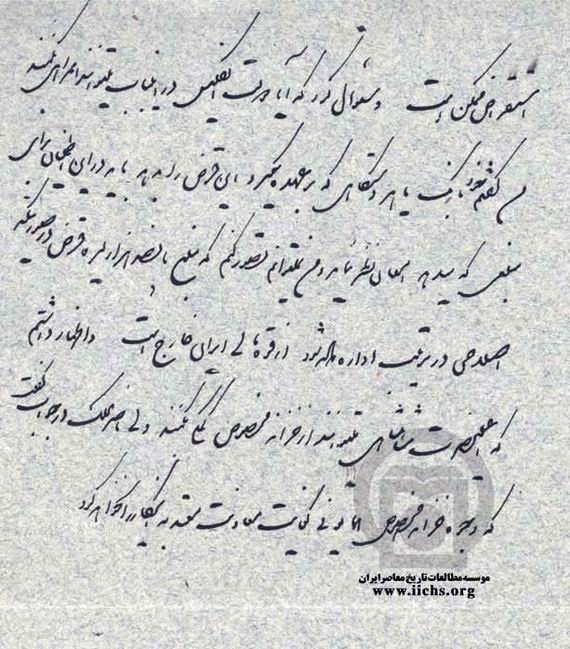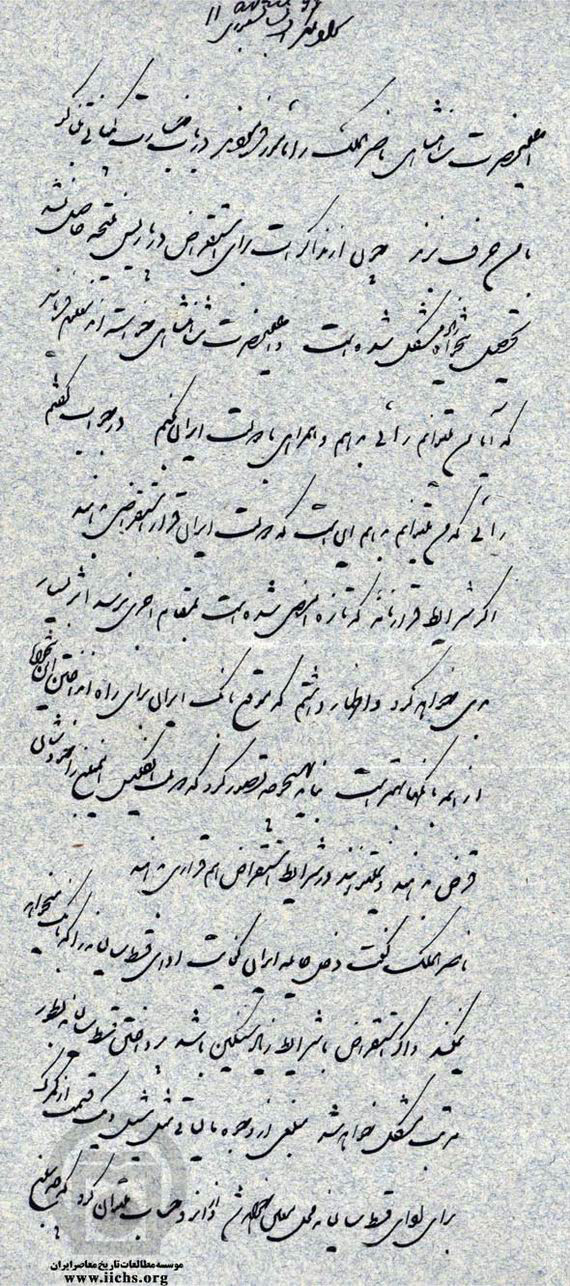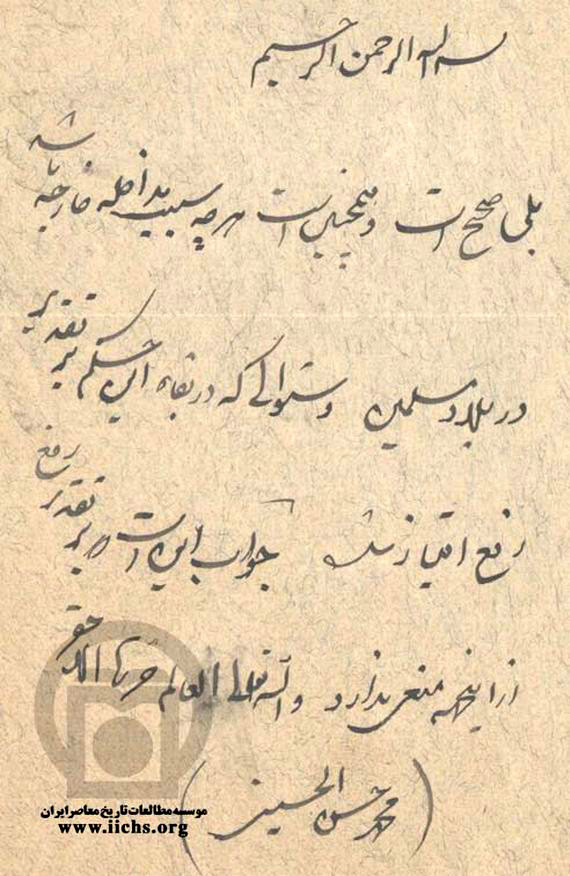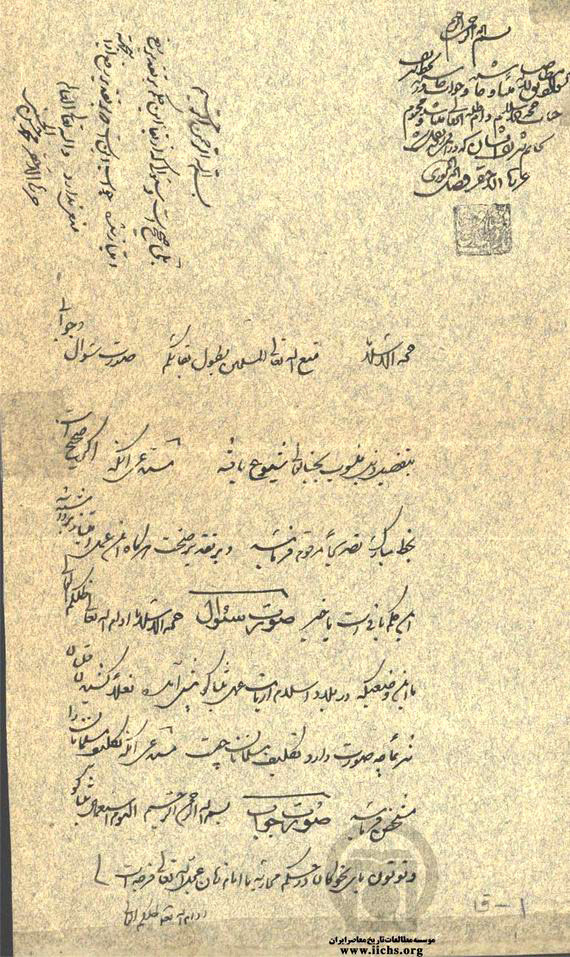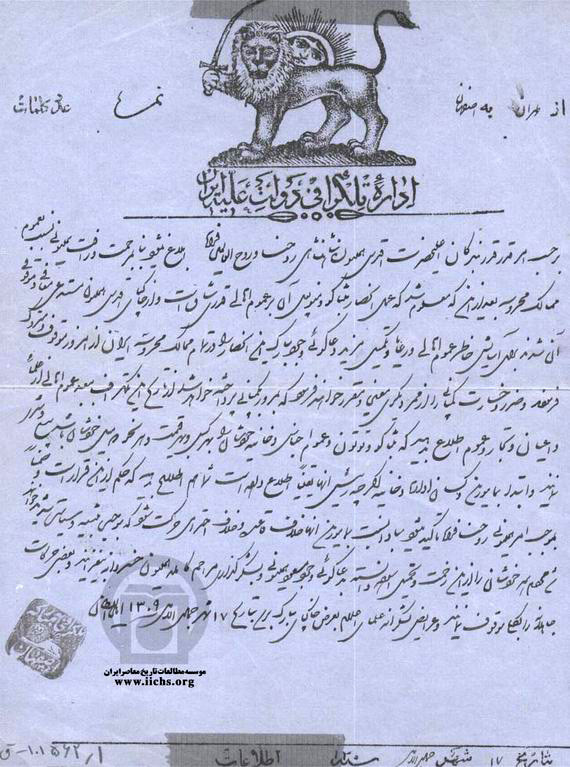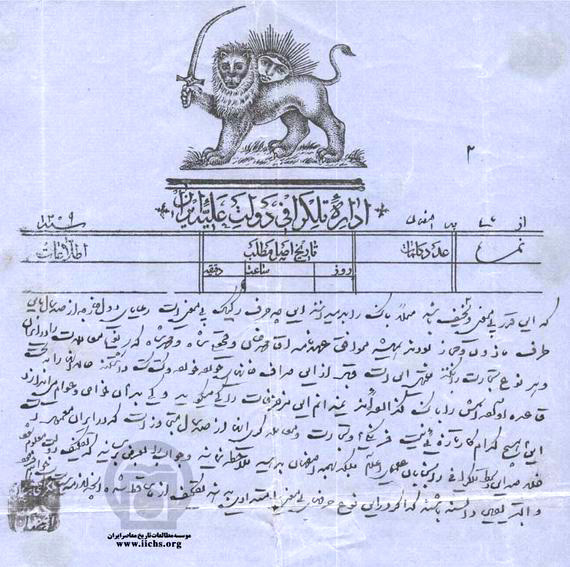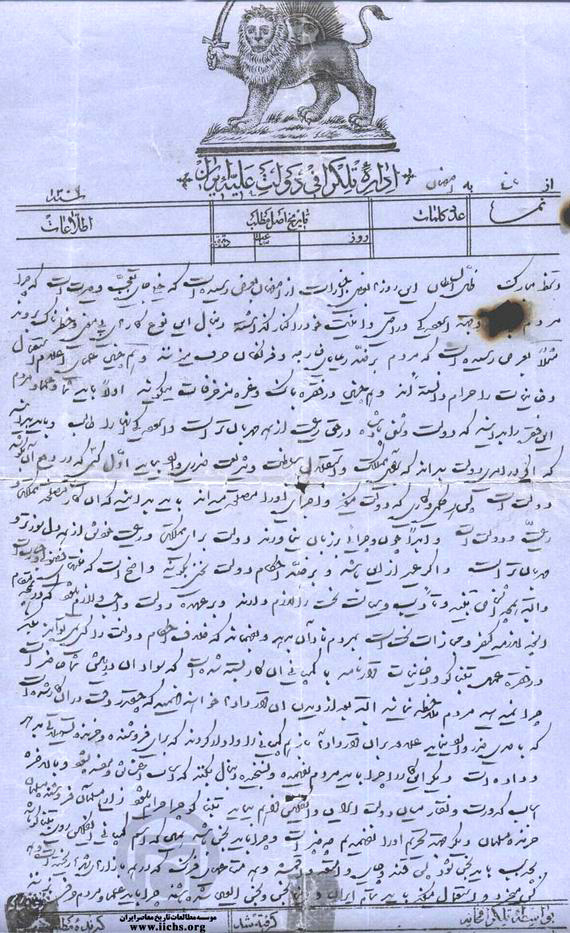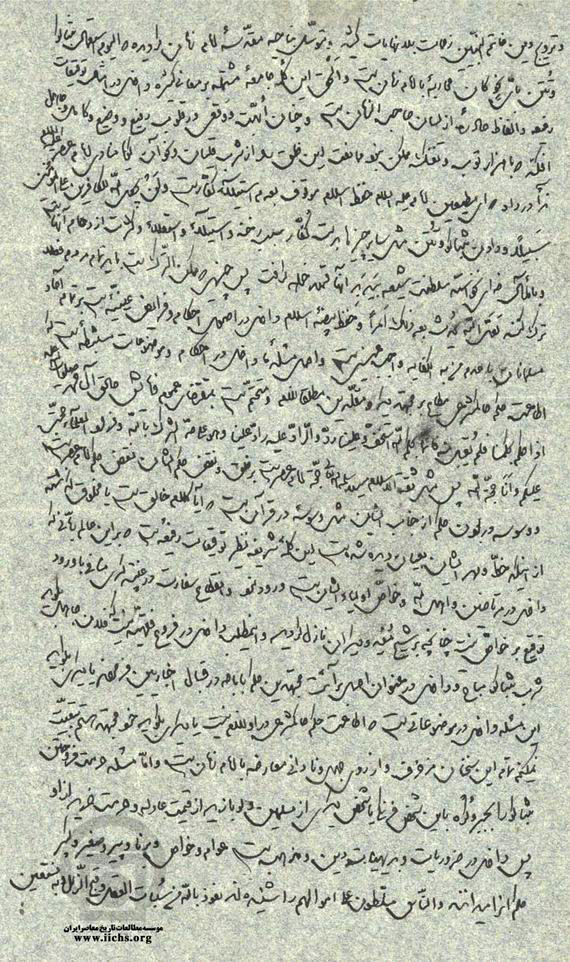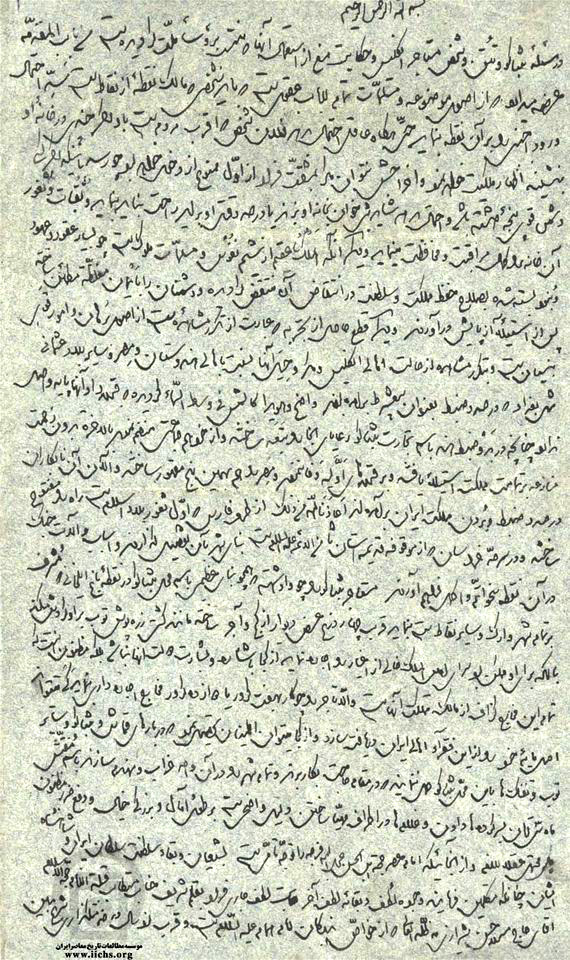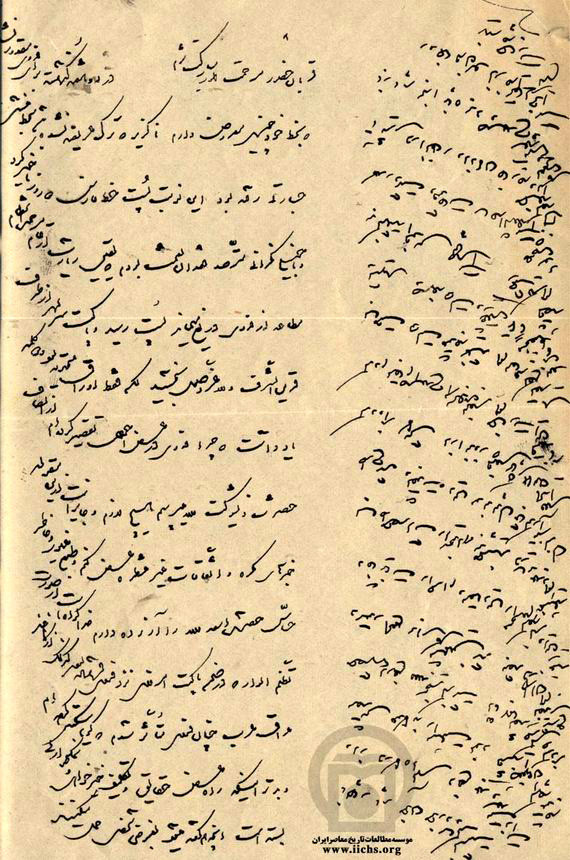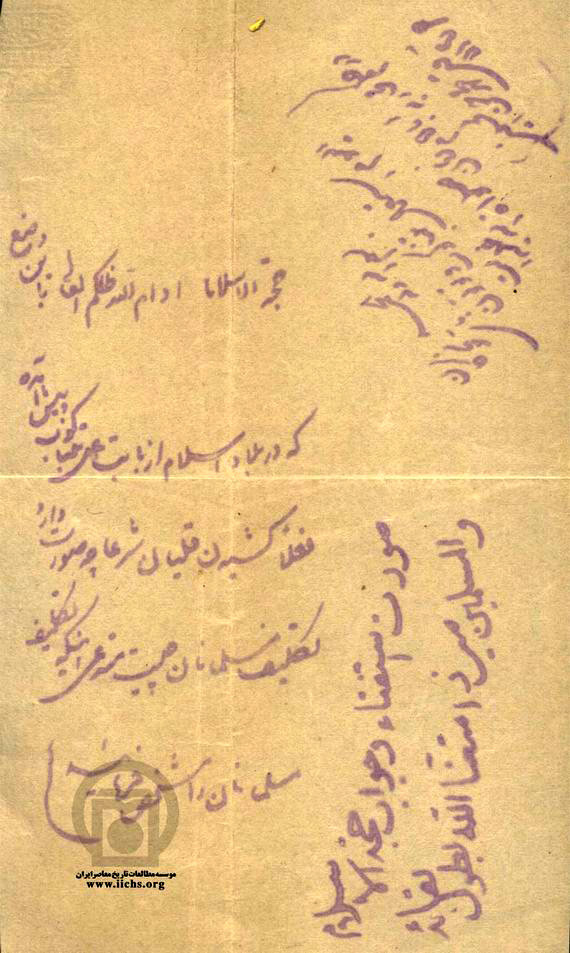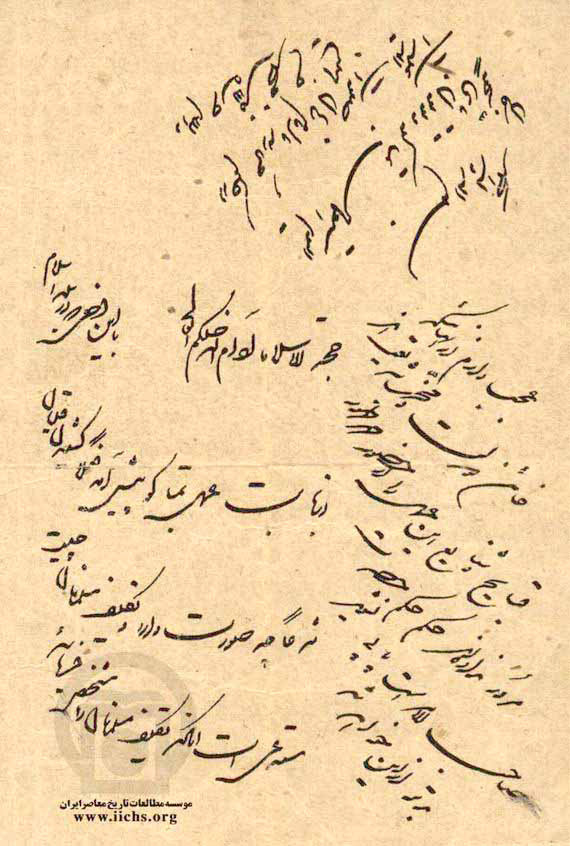Iranian history has witnessed very regrettable events; events that had taken place due to the incompetence of kings, especially in the Qajar period, such as granting of concessions and capital to foreign countries. Nasseraddin Shah was one of those kings that due to his own and his courtiers lavish and profligacy, and borrowings from the foreign States had the very policy. In 28 Rajab 1308 AH, he granted the Tobacco concession for 50 years to Major Gerald F. Talbot, a close relative of the Prime Minister of England, Lord Salisbury and instead, he himself and his Chancellor, Aminossoltan and Kamran Mirza Nayebossaltaneh were bribed. After the contract was concluded, Iranian people led by the religious authorities opposed the contract. Ayatollah Mirza Hassan Shirazi ruled out a fatwa for forbiding the use of tobacco, and observed it as a war with the twelfth Imam, and eventually, due to the staunch support of the fatwa by people, the Shah was forced to cancel the grant.
Among the documents relating to tobacco sanction, 12 pages had been selected which are indicative of seeking fatwa (religious decree) from Ayatollah Mirza Shirazi, the issuance of the verdict mentioned above and its confirmation by Sheikh Fazlollah Noori and the people's support of its execution. Shah expressed his dissatisfaction of people in their struggles in a telegram to Zilossoltan, and threatens publicly that if people do not cooperate with the company, he would take another decision. However, eventually he was forced to cancel concession appointed Nasserolmolk to see for the company's losses. Mirza Shirazi permitted tobacco use being subject to the elimination of grants.
iichs.ir/vdcb.8bfurhb0we4pr.html
